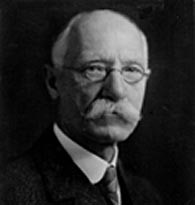Joseph Lee dedicated his life to promoting recreation and play for children and adults alike, and is best known for transforming a fledgling playground association into a national recreation movement. He was the president of the National Recreation Association for almost 30 years, and many of the ideas he formed while at the post shaped the recreation field as it stands today.
Joseph Lee’s Early Days
Joseph Lee was born on March 8, 1862, into a wealthy Boston family, and he grew up with the belief that his wealth obligated him to help others. After completing law school at Harvard University, Lee decided to devote his life to social causes. His philosophy was that many of society’s problems stemmed from limited access to environments where individuals could develop into happy, responsible citizens.
Lee’s early social work focused on the importance of play and recreation, with a concentration on children’s causes. In the early 1890s, he began research in his chosen field by establishing a playground in the Boston area, and shared his philosophy with the world through speeches and articles. “Play for adults is recreation-the renewal of life; for children it is growth—the gaining of life,” he famously said.
Sources in this Story
- Kansas State University: Joseph Lee (1862-1937) (PDF)
- The New York Times: Many Cities Adopt Playground Plan
- The encyclopaedia of informal education: “the playground of today is the republic of tomorrow”: social reform and organized recreation in the USA, 1890-1930’s
- The Massachusetts Historical Society: Joseph Lee Papers
Lee’s Notable Accomplishments
The playground movement, which swept across America in the early 1900s, was largely attributable to Lee’s work. Perhaps his most important contribution to American society was taking the movement from a minor experiment to a national idea of “recreation for all.” Along the way, the idea of play became known as an essential part of education and Lee gained his title of “Father of the Playground Movement.”
A July 26, 1908, article in The New York Times outlined the growing “playground movement.” According to the story, it was estimated that in the next 12 months, 200 cities would have made “adequate provision for the play of their junior citizens.” Furthermore, the movement had gained the support of President Theodore Roosevelt.
Through his speeches, Lee shared his ideas with the world. He became the president of the National Recreation Association in 1910 (since renamed the National Recreation and Park Association), a post he held until his death in 1937. Under his leadership, the group pulled together delegates from 30 cities and discussed the relation of play to subjects like democracy, health, citizenship and social morality at annual meetings.
Lee also wrote prolifically about his favorite subject. In his book “Play as a School of The Citizen,” he wrote that recreation can help develop “spiritual communication,” “bravery,” a sense of organization” and “loyalty,” among other qualities.
Lee’s 1902 book “Constructive and Preventive Philanthropy” can be read online.
The Rest of the Story
Lee died from pneumonia in 1937 while at his family home in Cohasset, Massachusetts, and was buried at the Walnut Hills Cemetery in Brookline.
But his death was by no means the end of his work. In addition to the continued success of the National Recreation and Park Association, Lee’s four children continued his social and philanthropic work. For many years, Joseph Lee Day was celebrated around the country.
This article was originally written by Cara McDonough; it was updated January 17, 2017.











